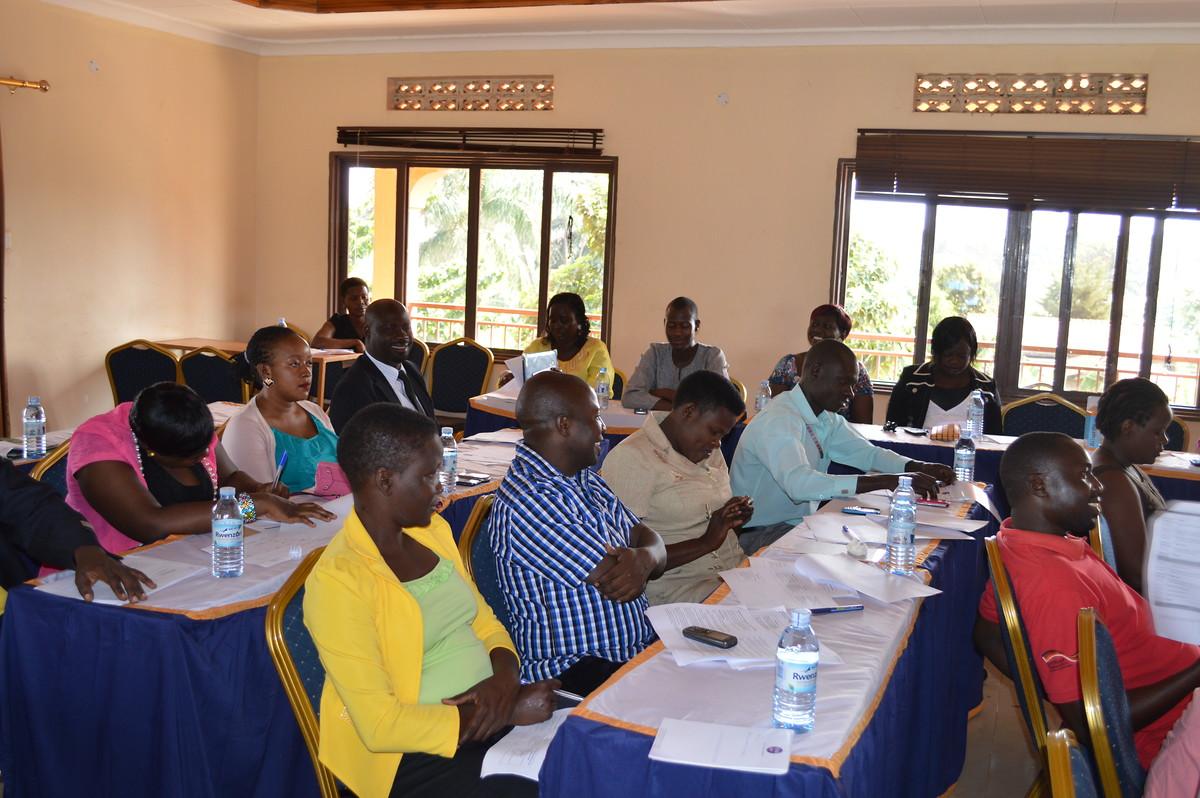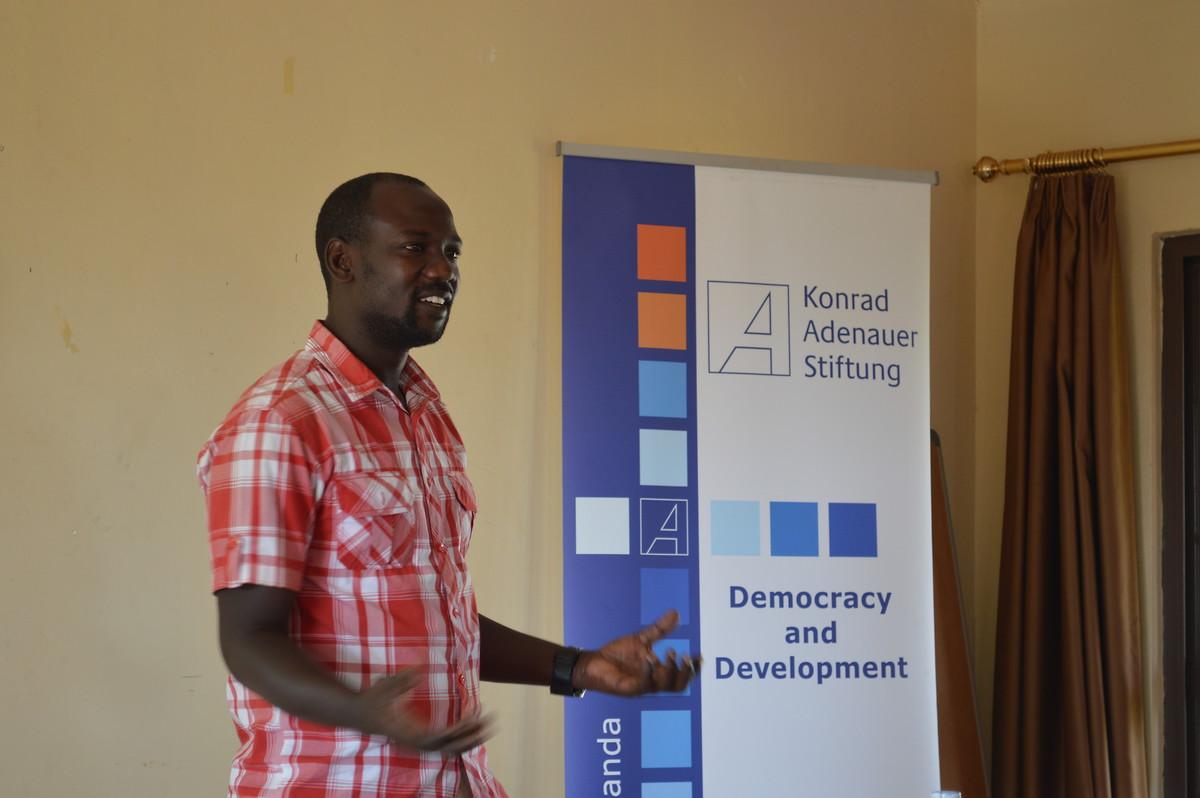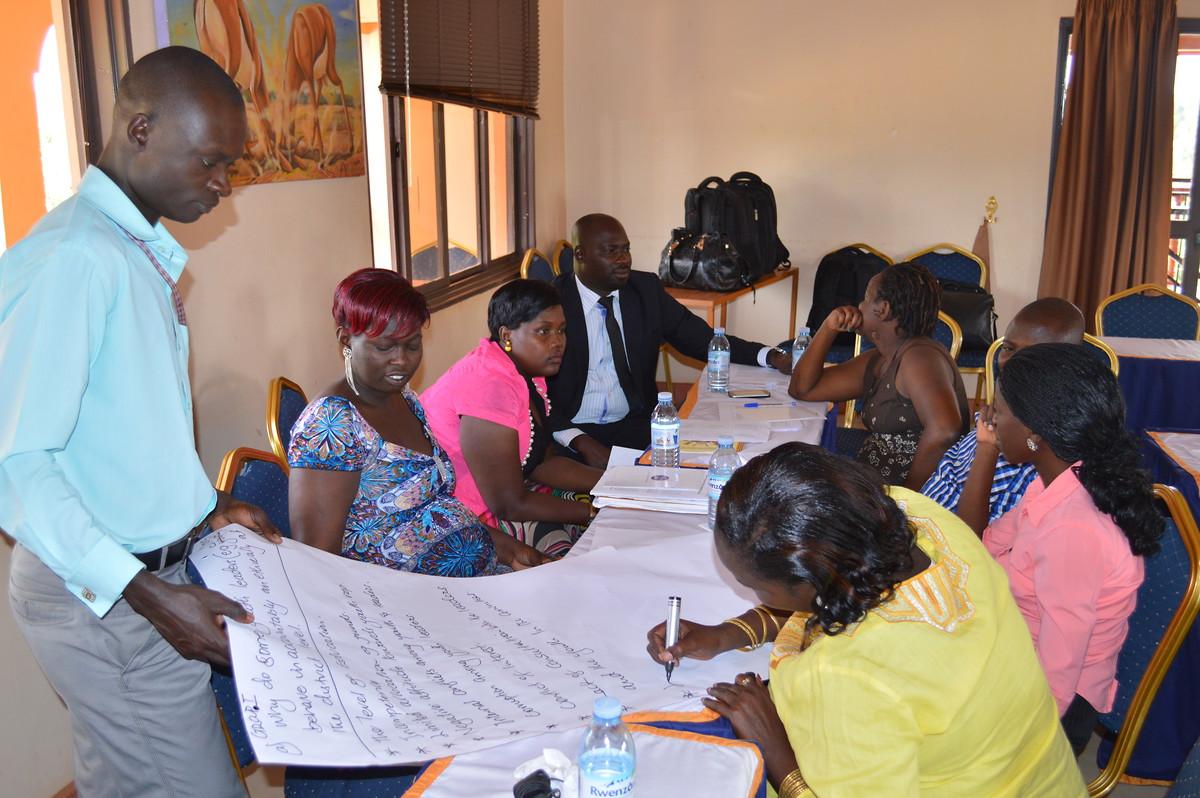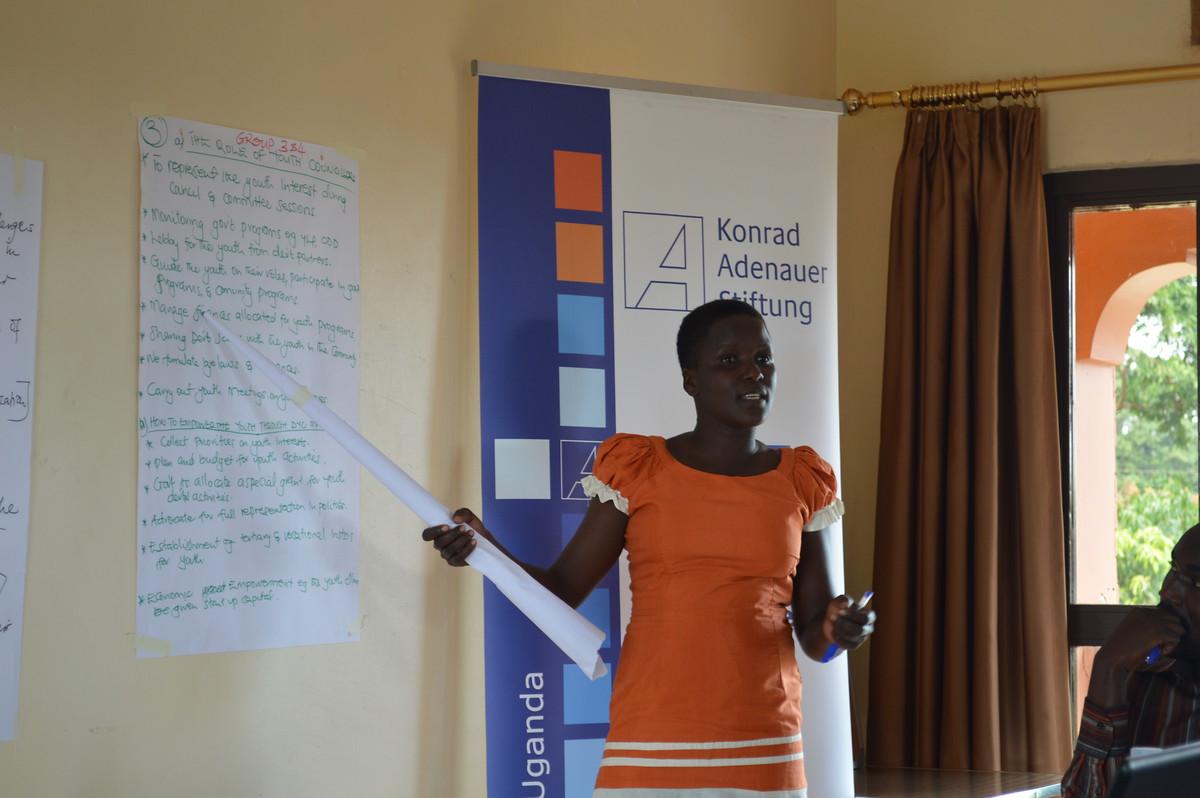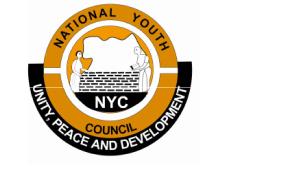Event reports
The first topic that built the framework of the event were the challenges surrounding the highly complicated and partially unclear network of youth structures at the local level. Especially the discrepancy between legal structures vis-a-vis practical execution regarding youth elections and the lack of coordination between the Youth Councillors at the District Council and the District Youth Council members were identified as key challenges. The workshop was officially opened by the Vice-Chairperson of the District Council of Mbale, Mr. Robert Wandwasi.
Further debate led by Prof Yasin Olum from Makerere University went into the strategies identified to realize effective youth participation despite structural challenges. Participants identified a need to review and amend the relevant laws that create dual structures without coordinating their field of work effectively, wide-spread civic education of the population about these structures, and more space for youth representatives to get involved in planning as key strategies to overcome the persistent challenges. Furthermore, they were challenged to interrogate their own role and agency in the system and their mandate to overcome these challenges and develop practical coping mechanisms that enable effective youth participation in a situation were legal amendments are a long terms process that should not silence the voice of youth until their realization.
In another session the challenges of women’s participation also within the youth were discussed with a focus on the role of stereotyping women in power as no longer fitting within the traditional social and cultural structures of family and community life. Furthermore, the key challenges of spousal influence on voting decisions of women was highlighted by the presenter, Mrs Mercy Florence Namugere from both Uganda Christian University and Islamic University in Uganda as an expert on Gender.
On the second day, Mr Bernard Okello from the NYC gave a presentation on dynamics related to generational gaps impeding youth participation followed by another session by Prof. Olum on ethics within youth leadership and conflict mitigation at the local level. Working groups of participants were challenged to identify the causes and management approached for the two areas of concern. One lively topic of debate was the usage of allowances and endowments to Youth Councillors for executing their roles versus facilitating them on a personal level, with the result that high demands by constituencies and low levels of facilitation are key challenges to be addressed at a higher level. Another topic of concern was the misunderstanding that different political party positions are a danger rather than a valuable additional to the political process and that sensitization of the population and political leaders to this effect is needed.
The workshop overall engaged in valuable debates to outline challenges and strategies of district youth leaders to fulfil their mandate effectively. It will inform the NYC for the future as well as KAS in their programming and build the capacity of participants to reflectively engage their fellow youth on these issues for learning and improvement.



